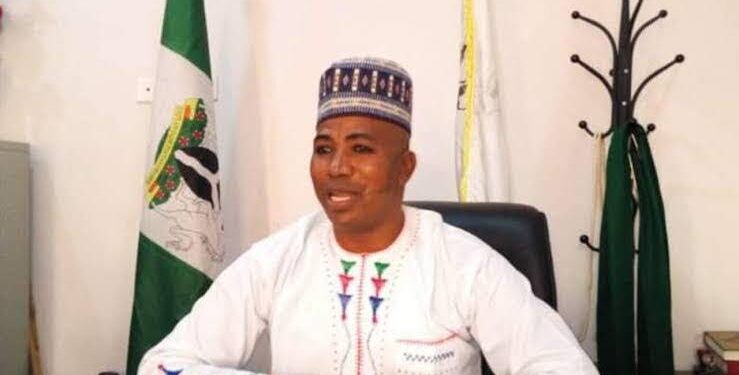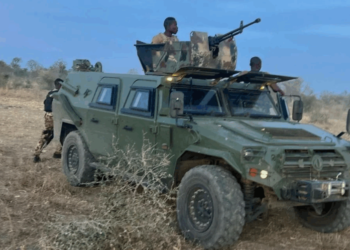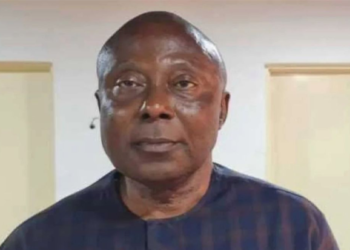President, Miyetti Allah Kautal Hore, Alhaji Bello Bodejo, on Thursday, prayed an Abuja High Court to order his release from the State Security Service (SSS)’s detention facility pending the hearing and determination of the substantive application.
Bodejo, in a motion ex-parte marked: M/16976/2024 and filed by his team of lawyers led by Reuben Atabo, SAN, also sought an order granting him leave to apply for the order of habeas corpus subjiciendum against the respondents.
The News Agency of Nigeria (NAN) reports that habeas corpus subjiciendum is a Latin phrase and a legal term used to describe a writ that is directed to someone who is detaining another person to inquire into the legality of the detention.
Bodejo, in the motion dated and filed on Dec. 19, sued the Attorney-General of the Federation (AGF) and the Director General of SSS as 1st and 2nd respondents.
He sought two orders, including “an interim order directing the respondents to, forthwith, produce the applicant from detention for him to be released, pending the hearing and determination of the substantive application for habeas corpus subjiciendum.”
Giving five grounds upon which the application is predicated, the senior lawyer said that Bodejo was arrested on Dec. 9 by soldiers of the 177 Guards Battalion, Keffi of the Nigerian Army and detained at their barracks in Keffi.
He said the Nigerian Army, thereafter, transferred him to the custody of the Defence Intelligence Agency (DIA) in Abuja up to Wednesday (Dec. 18) without being charged to any court of competent jurisdiction.
Atabo said Bodejo had been transferred from the custody of the DIA to the SSS custody in Abuja, today (Dec. 19) without being informed of the allegation against him.
The lawyer said the respondents are not desirous of diligently prosecuting his client “before a competent court of law and thus, their actions are unconstitutional and shorn of any legal basis whatsoever.”
He said the continuous and inexplicable detention of Bodejo by the respondents without trial in a competent court of law is unlawful and without justification, thus, necessitating the instant application.
In the affidavit in support of the motion ex-parte deposed to by Bodejo’s senior wife and a businesswoman, Hauwa, she said her husband is the president of Miyetti Allah, a Fulani socio-cultural organisation with his office in Karu Local Government Area (LGA) of Nasarawa State.
She said on Dec. 8, there was a communal clash between some Fulanis and a retired military officer, Admiral Dan Gwari, at Shuwari Village in Karu LGA of Nasarawa State.
Hauwa said Gwari has a farmland situate at Shuwari Village, where he cultivates crops.
She said some Fulanis rearing their cattle entered the farmland belonging to Gwari on Dec. 8.
She said upon entry into the said farmland, there was exchange of words between the Fulanis and Gwari, consequent upon which the retired officer drew out his gun and began shooting at the Fulanis.
“That the Fulanis rearing the cattle however dodged the bullets he repeatedly shot at them, whereupon the bullets hit and killed about four (4) of their cows.
“That the said Fulanis thereafter proceeded to disarm ADMIRAL DAN GWARI (RI’D.) and in the process of struggling with him in order to disarm him, he accidentally sustained machete cuts on his head.
“That the Fulani Elders at the RUGA in Shuwari Village immediately took ADMIRAL DAN GWARI (RTD.) to the hospital, where he was promptly treated and discharged shortly, after the said elders had fully paid the hospital bills,” she averred.
Hauwa alleged that upon being discharged from the hospital, Gwari proceeded to the military barracks of the 177 Guards Battalion of the DIA at Keffi and mobilised some men of the Nigerian Army who subsequently stormed the RUGA Settlement, arrested several Fulani boys and further took away with them about Four Hundred (400) cows.
She said during all these incidents, Bodejo was away to Bauchi State on a business trip and was not in any way aware or privy to what had happened between Gwari and the Fulani boys/herders at Shuwari Village.
She alleged that when her husband came back on Dec. 9, some men of the 177 Guards Battalion of the Nigerian Army, acting on the instruction and active promptings of Gwari, came and invited him to the barracks in Keffi.
She said when Bodejo got to the barracks, he was detained, allegedly “acting on the instructions of Gwari and the Nigerian Army, thereby cutting him off from his wives, children, family members and lawyers.”
She further alleged that Bodejo was subjected to inhuman or degrading treatment in the custody.
“My husband (the applicant) called me on the phone on Dec. 11, to inform me that the Nigerian Army were taking him to an underground cell of the Defence Intelligence Agency and will blind fold him thereafter,” she said.
She said she later found that her husband had been moved on Wednesday night to the custody of SSS where he is currently being detained.
Bodejo’s wife said since her husband’s arrest and detention, he had been denied of his drugs and medications.
Hauwa, who said that the applicant would be greatly prejudiced if the application is refused, said it would be in the interest of justice to grant their motion.
No date has been given for the hearing of the motion as at the time of filing the report.(NAN)











